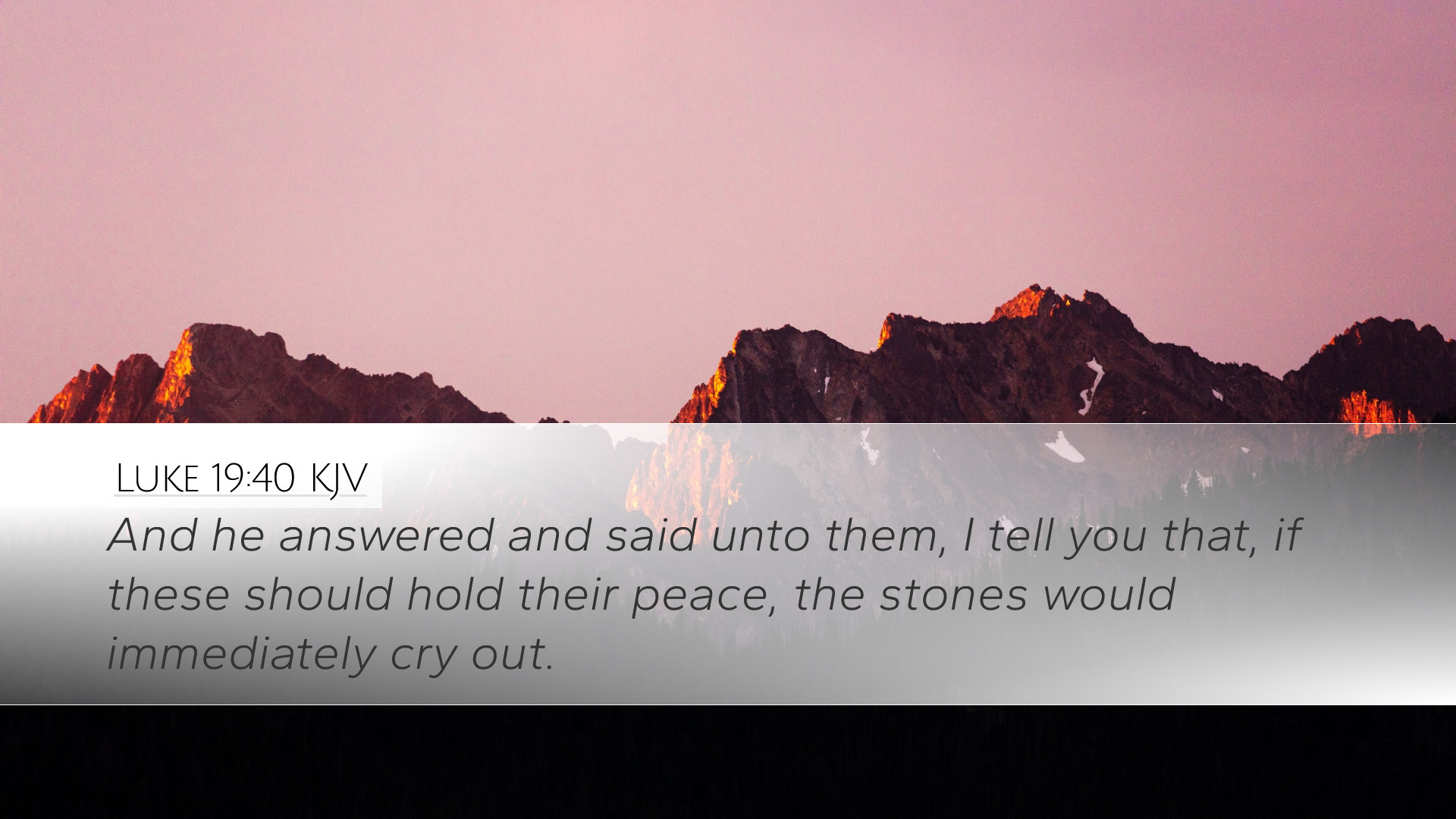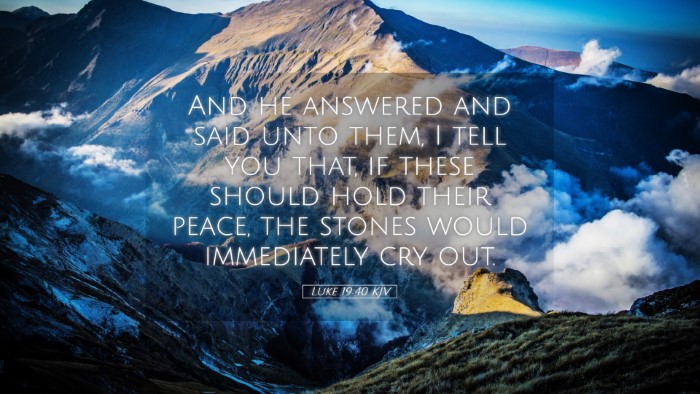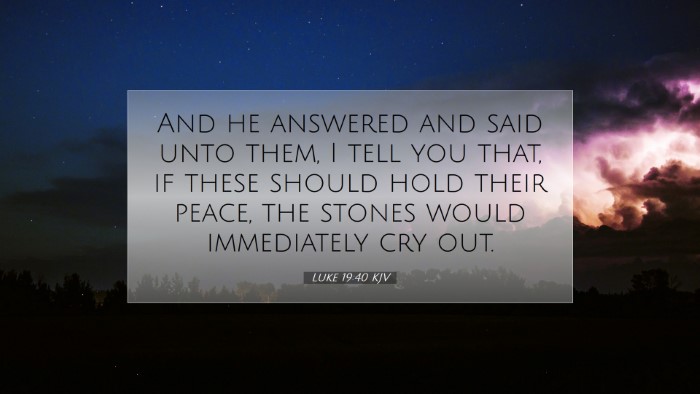Commentary on Luke 19:40
In the Gospel of Luke, chapter 19, verse 40, we encounter a profound declaration made by Jesus during his triumphal entry into Jerusalem. The verse states:
"But He answered and said to them, 'I tell you that if these should keep silent, the stones would immediately cry out.'" (NKJV)
This statement occurs in a context rich with theological significance and prophetic fulfillment. Various public domain commentaries provide valuable insights into this passage, highlighting its implications for worship, divinity, and creation.
Contextual Analysis
Before delving into the verse itself, it is essential to understand the surrounding context. Jesus is making his way to Jerusalem, fulfilling prophetic traditions as the Messiah. This moment is marked by the exuberant praise of the crowd, who recognize Jesus’ authority and messianic role.
Matthew Henry's Commentary
Matthew Henry emphasizes the significance of this triumphant entry as a declaration of Jesus’ kingship. He notes:
"As the people shout in joy, it is a moment pregnant with meaning; it demonstrates the rightful acknowledgment of the Messiah. It is a teachable moment, reflecting the divine order of worship."
Henry goes on to suggest that the stones crying out if the people were silent symbolizes God's sovereignty. He argues that creation itself is a witness to God's glory and majesty. Should humanity fail to praise Him, even the inanimate creation would fulfill that role.
Albert Barnes' Insights
Albert Barnes’ commentary takes a slightly different angle by focusing on the implications of silence regarding praise. Barnes reasons:
"This verse illustrates the necessity of proclamation; silence in the face of divine revelation would not be acceptable, as all creation is eager to glorify God."
He continues by asserting that the stones represent something broader—an illustration of how God's truth cannot be suppressed. There is an inherent need for the acknowledgment of God’s glory, which demands a response. Silence from God's people leads to an unthinkable situation: the very creation bearing witness instead.
Adam Clarke's Reflections
Adam Clarke echoes similar sentiments but adds nuances concerning the intentionality behind worship:
"The jubilant cries of the crowd signify a loaded response to the prophetic truths fulfilled in Jesus. Worship is an act of recognizing God’s work in history."
Clarke's commentary draws attention to the potential of believers to neglect their call to glorify God. He warns against complacency in faith, suggesting that failing to do so may lead to a loss of vocal witness while creation continues to proclaim God's majesty.
Theological Implications
The implications of Jesus' response to the Pharisees extend beyond the immediate audience. The notion that stones could cry out introduces several theological themes:
- Sovereignty of God: God's authority extends to all of creation, emphasizing that nothing can thwart His plans.
- Human Responsibility: Believers are called to vocalize their faith. Withholding praise not only reflects a neglect of duty but also risks missing the transformative experience of worship.
- Creation's Witness: The statement serves as a reminder that creation bears witness to its Creator. The stones symbolize that God desires praise from all aspects of life.
Praise as an Act of Faith
Matthew Henry points to the relational aspect of worship, noting that genuine praise reflects an understanding of God's character. Henry argues that:
"The praises of the righteous resonate with the reality of God’s unparalleled greatness. Therefore, failing to express that praise constitutes spiritual neglect."
This observation invites pastors, students, and scholars to consider their personal and communal responses to God’s work. Worship is not merely a ritual but an intrinsic aspect of faith that fosters deep engagement with the divine.
Conclusion
Luke 19:40 serves as a reminder of the urgency and necessity of proclaiming God's glory. While the Pharisees wish to silence the crowds, Jesus emphasizes that the reality of who He is and what He represents cannot be contained. The resulting praise, whether from humanity or creation, speaks to the undeniable truth of God's sovereignty.
In the pursuit of understanding and sharing these truths, pastors, students, and theologians are encouraged to recognize the potency of their voices in echoing the worship due to God.


